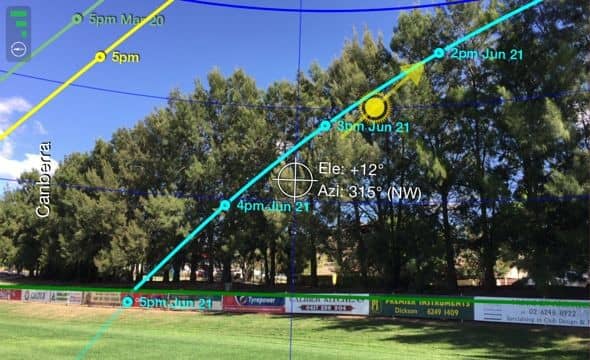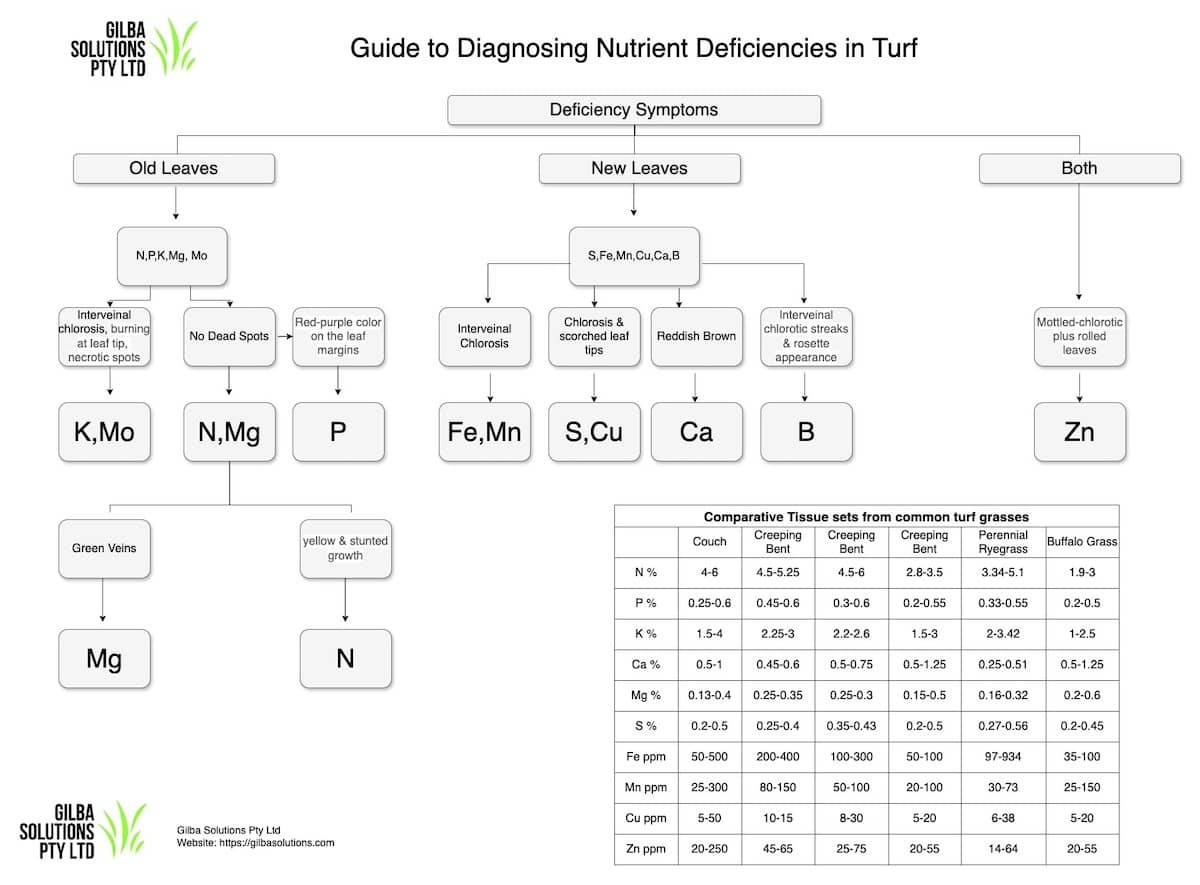SPORTS TURF AGRONOMISTS.
About Gilba Solutions.
As Bowral based sports turf agronomists, Gilba Solutions offer independent turf agronomy services throughout NSW, QLD and the ACT.
Jerry Spencer, is our Senior Turf Agronomist with an Hons Degree in Soil Science and a Grad Dip in Marketing. However just as valuable as this is over 35 years experience in turf agronomy in the UK and Australia.
That’s one of the reasons our clients range from Group 1 golf courses, and Stadium Managers, to UK Premier League Clubs.They all appreciate an independent professional service from University qualified staff.
Our Scientific Approach as Sports Turf Agronomists.
We work closely with turf managers to produce the best possible playing surfaces. After a turf health assessment, a soil or water test or a site visit any recommendations are based on good science. We don’t just try to sell you products.
We are one of the few turf companies in Australia to employ a University qualified Soil Scientist. We are confident we can tailor any program to meet your budget.
Industry Innovations.
We were one of the first companies in Australia to introduce agronomic practices such as:
- NDVI, soil moisture and soil profile GPS compaction mapping.
- Stand alone non staining turf pigments for warm season turf.
- The use of a slow release Magnesium soil amendments.
Related resources: Argentine Stem Weevil Predictor. Overseeding timing guide. Grass Seed for Overseeding. Soil Wetting Agent Selector. Traffic Tolerance Calculator. Turf Irrigation Calculator. Sand amendment Calculator. Lawn Armyworm Tracker.
Turfgrass Science.
We are strong advocates of education, and we release regular guides to help you better manage your turf grass. Here is a recent Guide to ID Nutrient deficiencies in Turfgrass.
Our Values As Sports Turf Agronomists.
- Support industry bodies that help promote the turf industry. A good example of this is International Greenkeepers for Hire.
- Believe in regular testing of products. See our 2022/2023 work on soil surfactants, and their impact on soil organic matter.
- Support the use of non-chemical alternatives. See our blog on DIY pest control.
Our Services as Sports Turf Agronomists.
Sports Turf Health Assessments:
Turf agronomy enables you to carry out an audit of a sports surface. This gives you a real-time picture of the surface, and allows you to:
- Map, measure, and monitor the turf grass.
- Limit the use of chemicals, fertiliser, and water.
- Quantify turf health.
- Identify the impact of surface hardness and sub-surface compaction on player safety.
- Address any poor management practices.
- Identify any problems with the drainage, soil, or turf selection.
Once this is completed you have an easy-to-read report with simple to follow recommendations.
Surface Hardness Testing:
- A cone penetrometer helps identify issues with surface and subsurface compaction, and potential safety concerns.
- We have recently introduced a soil compaction and aeration calculator.
Turf Health Assessment:
- An NDVI allows early detection of any existing or future problems. A sports turf agronomist uses this to identify issues such as disease, the impact of shade on turf grass, or even wear.
Soil Moisture Mapping:
- This equipment allow you to map the soil moisture, and carry out irrigation audits.
Shade Analysis.
- This involves a site visit and identifies any issues with shade and remedial options to deal with it.

Shade analysis of a sports ground in Canberra
Soil Testing.
Turf agronomy is the study of soil, and Jerry Spencer our Senior sports turf agronomist has an Hons Degree in Soil Science.
A Soil test gives information on a soil’s physical and chemical properties. A discussion on the use of AI in soil testing.
Tips To Get The Best From A Soil Test.
- Before you start, when was it last tested? Annual testing of a heavy soil is a waste of time. In contrast, a new sand construction benefits from regular testing. Unless you have a specific problem or test a sand-based root zone, you only need to test every three years.
- You need to take a representative sample. Not a sample from just one location.
- Before you test when did you last apply fertiliser?
- If you want to compare results its important to know what methods were used. Not all companies use the same extractant.
- Who is interpreting the results?
In many cases, if you don’t know the answers to the above then doing a soil test is a waste of time.
Water Testing.
Turf Managers often overlook water quality. However, when you consider it directly affects turf and some turf chemicals, water testing should be more of a focus.
A sports turf agronomist identifies how chemicals in the water:
- Directly impact soil chemical and physical properties.
- Effect the rate of alkaline hydrolysis of certain chemicals.
Player Safety & Field Management.
Sportsground Safety.
The increase in use is placing more pressure on existing playing surfaces. This raises the issue of player safety. This is one example of where a qualified sports turf agronomist can play an important role.
Field Usage.
Several factors effect the level of use a sports field can take. These are:
- The construction type.
- What age are the players? Adults cause more wear than children.
- What turf type is present? Turf types vary in their wear tolerance.
- When is it being used? The time of year has an impact on wear and recovery.
- Does the site have drainage or irrigation? A wet field is more prone to damage than a dry one.
Recommendations For The Hours of Use Per Week by Construction Type.
Construction Type | Use |
Soil field (with or without drains). | 2-3.7 |
Sand profile with drains. | 5.3-11 (7.8 hours per week over a 35 week season). |
Sand carpet construction. | 12-13 |
Recommendations For The Hours of Weekly Use by Season and Grass Type.
Season | Perennial Ryegrass | Couch |
Winter season | 5-12 | 15-20 |
Summer season | 10-15 | 20-25 |
Tips To Maintain Surface Quality:
- Don’t train in high-wear areas.
- Spread wear around. Don’t repeatedly train in the same spot.
- Carry out repairs as soon as you can. For example, try and divot fill straight after a game.
- Commit to regular maintenance work.
START IMPROVING YOUR PLAYING SURFACES TODAY
FREE TURF ASSESSMENT CONSULTATION
Book a no-obligation consultation with our senior sports turf agronomist Jerry Spencer and discover how science-based turf management can transform your playing surfaces.
- ✓ Comprehensive site evaluation
- ✓ Customized recommendations
- ✓ Budget-friendly solutions
- ✓ 35+ years of experience
No obligation • Fast response • Professional service
Case Studies as Sports Turf Agronomists.
More case studies are in our case study section.
Case Study 1: Private School Field.
A major Public School in Sydney had issues with damage on an oval over the Winter season.
Gilba Solutions carried out an assessment to ientify any issues and, what action was needed to deal with them.
Findings:
- The ground received over 70 hours of use a week.
- Subsurface examination showed soil compaction at a depth of 100 mm.
Recommendations:
- Spread the wear.
- Use more wear tolerant ryegrass varieties.
- Adopt a compaction relief program to reach the deep compaction layer at 100 mm.
Case Study 2: Stadium Shade Impact Study.
This is an NDVI Study into the impact of shade on the turf in a Sydney Stadium. The North end of this major venue was struggling and disease issues had developed.
Findings:
- The turf cover at the North end was about 15 to 20% less than at the South end.
- Over the Autumn and Winter the stands were causing shade issues.
Outcome:
As a result, this became the first location in Australia to install LED stadium grow lights.
Our Clients
Clients who use our sports turf agronomist services include:
- The NRL.
- Sydney University.
- Accor Stadium.
- Comm Bank Stadium.
- Knox Grammar.
- Kings School.
- The ACT Government.
Research & Development as Sports Turf Agronomists.
Recent Research Projects
Recent sports turf agronomy research:
- Grass seed to overseed couch.
- The Use of turf pigments on golf greens.
- A 2-year study into Soil wetting agents and their effects on soil moisture.
- The impact of foliar bio-stimulants on root growth.
- Argentine Stem Weevil Tracker for Australia.
- Soil Wetting Agent Selector Tool.
- Turf Irrigation Calculator.
Sports Turf Agronomist Blog.
We write a regular Turf Blog on topics such as:
Turf Management Topics
- The Use of organic fertilisers on sportsturf.
- Manganese and its role in turf IPM.
- How Sports turf ryegrass has improved
- How to add value to your home.
- How to get the best results with Autumn broadleaf weed control.
- Managing Stadiums for non sports events.
- Turf Nutrient Management.
- Nutrition strategies for High Performance Turf.
- Aquatic weed control at Federal Golf Club in Canberra.
- 2024 Soil wetting agent research.
- How granular gypsum products differ.
- The impact of Climate Change on weed control.
- The role of blue light on grass in shade.
- What affects herbicide performance.
- The role of salicylic acid in turf.
- Indicator weeds.
- NZ vs US turf ryegrass.
- How to manage Pythium in turf.
- Ground pearl.
Weed Profile Series
- Petty Spurge.
- Swinecress.
- Amaranth.
- Cleavers.
- Sowthistle.
- Heal All.
- Dock.
- Pigweed.
- Creeping Buttercup.
- Little Ironweed.
- Oxeye Daisy.
- Tangier Pea.
Hire Our Services.
Consultation Process.
Discover how Jerry Spencer and the Gilba Solutions team can help you take care of your sports turf.
Please feel free to contact us for a free consultation and see what we can do for you.
Customized Solutions
We have several packages to meet any budget. After an initial free consultation, we are happy to discuss these on a case by case basis.
One Shoe doesn’t fit everyone. Gilba Solutions are specialists in sports turf digital solutions. We offer a data driven approach to manage soil moisture, turf health and the safety of your turf surfaces.
Factors such as the climate, rootzone, grass type and budget are all taken into consideration with any program we develop.
CONTACT OUR SPORTS TURF AGRONOMIST TEAM
CALL US
04999 75819
Available Mon-Fri, 8am-5pm
LOCATIONS SERVED
NSW • QLD • ACT
Based in Bowral, NSW

